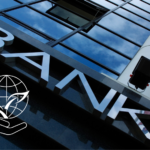Introduction to ESG and Financing
As an ESG and sustainability professional, I have witnessed how Environmental, Social, and Governance (ESG) criteria have transformed the way businesses access financing. What was once a “nice to have” is now a fundamental requirement. Banks, institutional investors, and private equity funds no longer assess companies solely on financial performance. They now integrate ESG factors into credit ratings and investment decisions.
In Greece, this global shift is becoming more evident every day. The Bank of Greece requires all financial institutions to apply ESG considerations when evaluating loans. This means that the road to financing for Greek companies—whether large or small—passes directly through their ESG performance.
Companies that fail to adopt sustainable practices or ignore transparency in their non-financial reporting face growing risks. Borrowing costs rise, lending terms tighten, and in some cases financing is denied altogether.
Benefits of Embracing ESG for Greek Businesses
The upside of this shift is significant. Companies that embrace ESG are not just “ticking compliance boxes.” They are building stronger, more resilient organizations. According to a recent survey conducted by the Center for Sustainability (CSE) in early 2025, there is a proven link between ESG adoption and profitability in Greece.
By integrating sustainability into their core strategy, businesses can:
-
Lower financial risk and secure better borrowing terms.
-
Increase investor confidence through transparency.
-
Gain easier access to capital for green and social projects.
-
Enhance their reputation with customers, partners, and international markets.
In fact, sustainability-linked loans and Green Bonds are becoming mainstream in Greece, connecting funding directly to a company’s ESG performance.
Practical Steps for Companies
So, what can Greek companies do to prepare? The first step is to view ESG not just as an obligation, but as an opportunity. International experience shows that reliable assessment tools, such as the CR Index, can provide measurable benefits. These tools help companies identify risks, improve governance, and demonstrate accountability to lenders and investors.
Example: Common Mistakes to Avoid
One of the most common mistakes I see is companies treating ESG reporting as a last-minute compliance exercise. This reactive approach not only undermines credibility but also limits access to financing opportunities. Instead, companies should embed ESG into daily operations and long-term planning.
From Compliance to Competitiveness
European regulations such as the Corporate Sustainability Reporting Directive (CSRD) make ESG reporting mandatory for large listed and non-listed companies. This is not simply a legal requirement—it is an essential step to remain competitive.
Greek companies that adapt now will be better positioned to expand internationally. They will reduce risks, improve profitability, and attract investors who are prioritizing ESG in their portfolios.
The message is clear: the future of financing is inseparable from ESG. For Greek businesses, the choice is straightforward—adapt and move forward, or face exclusion and shrinking opportunities.
A Greek-language version of this article was originally published in the newspaper To Vima tis Kiriakis (Special Edition, September 7, 2025)









